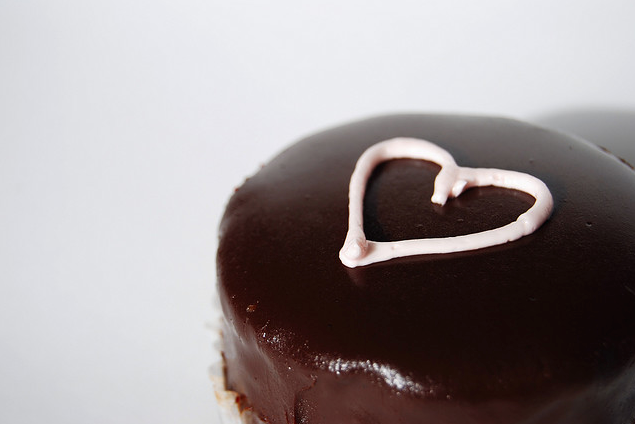Why is Valentine’s Day one of my favorite days of the year?
One word: chocolate! And on Valentine’s Day there is lots of it. An estimated 58 million pounds of chocolate will be bought in the week before Valentine’s Day.
Chocolate was originally cultivated in Mexico and Central America by the Aztecs and Mayans from the cacao bean. The Aztecs associated chocolate with the goddess of fertility and the famed King Montezuma used it as an aphrodisiac. The Aztecs valued the cacao bean so much they actually used it as a form of currency.
The Spaniards took chocolate back to Europe but as the Aztecs drank it, it was quite bitter. They added milk and sugar to make more suitable to their tastes. The milk chocolate candy, as we know it, however, was developed years later in Europe.
The famous pairing of chocolate and Valentine’s Day came as a stroke of luck for the chocolate maker Cadbury.
Chaucer first introduced the association of romance with Valentine’s Day in the late 1300’s, but the use of chocolate as a favored gift for this occasion did not start until the mid -1800’s in England. During that period, the concept of Valentine’s day as a celebration for lovers was at full steam with flowers and paper Valentine’s cards floating everywhere.
Around that same time, Cadbury had figured out a way to more easily extract chocolate form the cacao bean to mix with sugar to create the delicious chocolate candy we love so much. The company could not have asked for better timing. Since then it has been a longstanding tradition to give chocolates on Valentine’s Day.
The best thing about chocolate is that it is actually pretty good for you!
Chocolate is rich in an anti-oxidants called flavanols. Flavanols are highest in products that contain the most cacao content, i.e. dark chocolate. Here are some of the fun benefits of dark chocolate:
-People who eat dark chocolate have a lower risk of both heart disease and high blood pressure. In one study, eating just one square of chocolate a day (about a fifth of an ounce) significantly lowered the risk of heart attack.
-Chocolate lowers the risk of stroke. In studies by Swedish researchers, women who ate 1.8 ounces of chocolate a week and men who ate 2.2 ounces of chocolate a week had lower risks of stroke as compared to those who ate little or no chocolate.
-Chocolate may have some effect on lowering risk of diabetes though making people more responsive to insulin.
-It is considered an aphrodisiac, because of its ability to increase the endorphins associated with arousal.
-Chocolate may also make us think more clearly. In one study, countries that had higher chocolate consumption had more Nobel Laureates. It has also been shown to improve memory.
Most health benefits were seen in dark chocolate with at least 60-70% cacoa content. The amount of chocolate thought to be healthy varies but about 1-2 ounces a day is optimal. Eating much more can increase the risk of getting too many calories and sugar. (In the average one-ounce chocolate bar with 70% cacoa, there are about 155 calories, plus 12 grams of sugar.)
Pure raw cacao is best, but if choosing sweetened chocolate, try to avoid artificial sweeteners. Honey and other natural sweeteners such as stevia are better.
References:
Celebrating Valentines Day with a Box of Chocolates
Desideri G, Kwik-Uribe C, Grassi D, et al. Benefits in cognitive function, blood pressure, and insulin resistance through cocoa flavanol consumption in elderly subjects with mild cognitive impairment: the Cocoa, Cognition, and Aging (CoCoA) study. Hypertension. 2012;60:794-801.
Khawaja O. Gaziano JM. Djousse L. Chocolate and coronary heart disease: a systematic review. Current Atherosclerosis Reports. 13(6):447-52, 2011 Dec.
Messerli FH. Chocolate consumption, cognitive function, and Nobel laureates. N Engl J Med. 2012; 367:1562-1564.
Klatell P. Chocolate And Valentines: Like Birds Of A Feather They Stick Together
Larsson SC. Virtamo J. Wolk A, Chocolate consumption and risk of stroke: a prospective cohort of men and meta-analysis. Neurology. 79(12):1223-9, 2012 Sep 18.
Larsson SC, Virtamo J, Wolk A. Chocolate consumption and risk of stroke: a prospective cohort of men and meta-analysis. Neurology. 2012; 79:1223-1229.
Mercola J. Surprise Chocolate can be good for you. Mercola Health.
Miller KB, Hurst WJ, Flannigan N, Ou B, Lee CY, Smith N, Stuart DA. Survey of commercially available chocolate- and cocoa-containing products in the United States. 2. Comparison of flavan-3-ol content with nonfat cocoa solids, total polyphenols, and percent cacao. J Agric Food Chem. 2009 Oct 14;57:9169-80.
Ried K. Sullivan TR. Fakler P. Frank OR. Stocks NP. Effect of cocoa on blood pressure. Cochrane Database of Systematic Reviews. 8:CD008893, 2012.
Love elephant and want to go steady?
Sign up for our (curated) daily and weekly newsletters!
Assistant Editor: Dana Gornall
Photo Credit: Geishabot/Flickr Creative Commons











Read 2 comments and reply